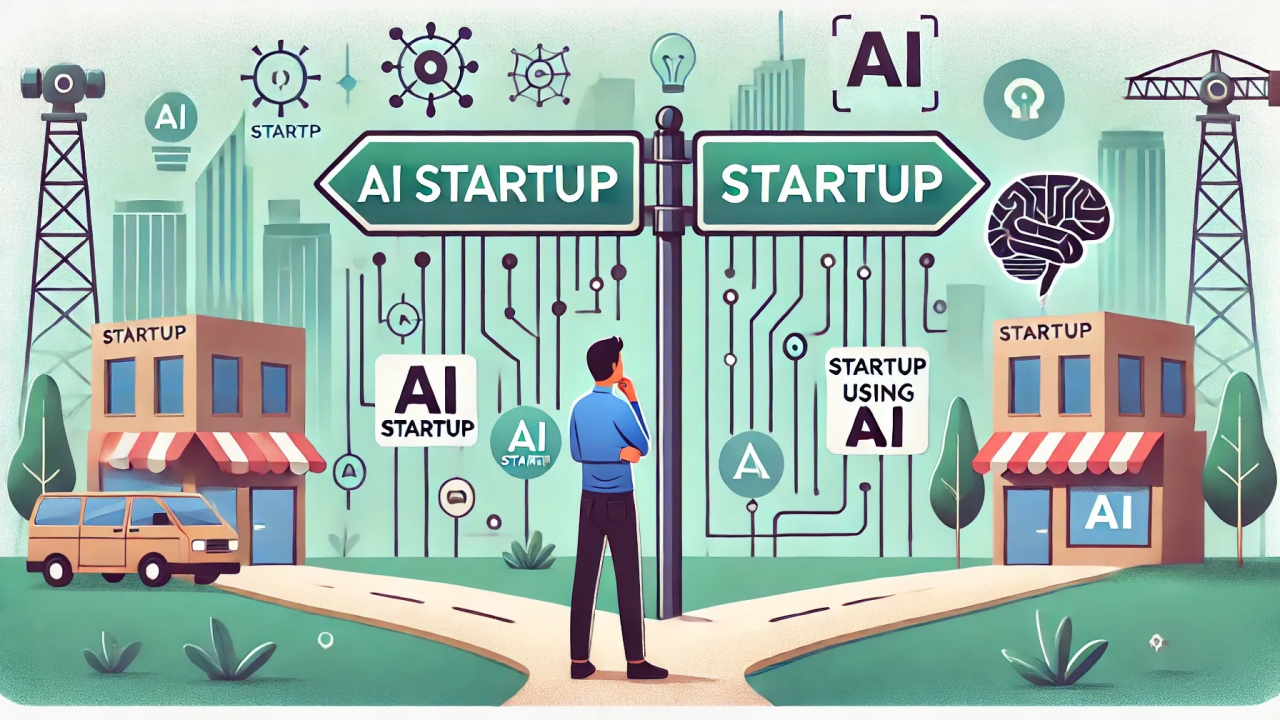01 Apr

Artificial Intelligence has come a long way. Once a futuristic dream saved for Star Trek and Star Wars, AI is now deeply embedded in our daily lives, powering everything from recommendation algorithms to customer service chatbots.
The past decade has seen an explosion of AI-driven businesses, and what was once a marker of technical innovation has now become an expected part of the tech landscape. But as the dust settles and investors and the world a like become better informed, founders need to ask themselves: Is AI truly the key to their startup’s success, or is it just another buzzword to make the deck look better?
What Are You Actually Using AI For?
Before slapping “AI-powered” on a pitch deck, startups must assess their use of artificial intelligence. AI is not a magic solution or silver bullet for every business problem like some seem to thnk these days.
It excels in areas like automation, pattern recognition, and predictive analytics, but blindly integrating AI without a clear, value-driven purpose can lead to inefficiencies and unnecessary complexity and can cost an arm and a leg!
Startups should consider:
- Is AI genuinely enhancing the core value of the product?
- Could the same outcome be achieved with simpler technology?
- Does the AI component provide a defensible advantage, or is it easily replicable by any competitor?
So really think about what you actually want AI to do, it can solve a lot of issues, but you need to know what you want it to do. Whether it’s prompting or your own custom LLM, you need to have a good understanding and consider whether it is the right path for your product.
AI Startup vs. A Startup That Uses AI
There’s a crucial distinction between an AI startup and a startup that uses AI.
An AI startup is one whose core product or service is fundamentally dependent on artificial intelligence. These businesses push the boundaries of AI development, creating novel algorithms, advancing machine learning research, or applying AI in ways that would be impossible without it. Often they would require custom LLMs and large datasets
A startup that uses AI is any company leveraging AI as a tool to enhance operations, improve efficiency, or gain insights, but whose value proposition does not rest on AI itself. Many modern businesses fall into this category, from e-commerce brands optimizing their supply chains to fintech companies using AI for fraud detection.
The distinction is more than semantic, it has real implications for positioning and expectations. Investors are increasingly wary of startups that brand themselves as AI-driven without a truly AI-first approach, so make sure you understand and can defend your position if you are a genuine AI startup.
Think Before You Brand as AI
AI is no longer the bleeding edge of innovation — it’s fast becoming a standard tool in the modern tech practises. While it remains powerful and can provide some massive benefits and innovations, its presence alone is not enough to impress investors or differentiate your startup. Startups should carefully consider whether they are genuinely an AI company or simply one that benefits from AI. Those that misrepresent their AI capabilities risk skepticism and lost credibility.
In short, don’t build an AI startup unless AI is the only way your product can exist. Otherwise, focus on building a great business that uses AI effectively, rather than using AI as a selling point. The market, and investors, are more attuned to the difference than ever!

